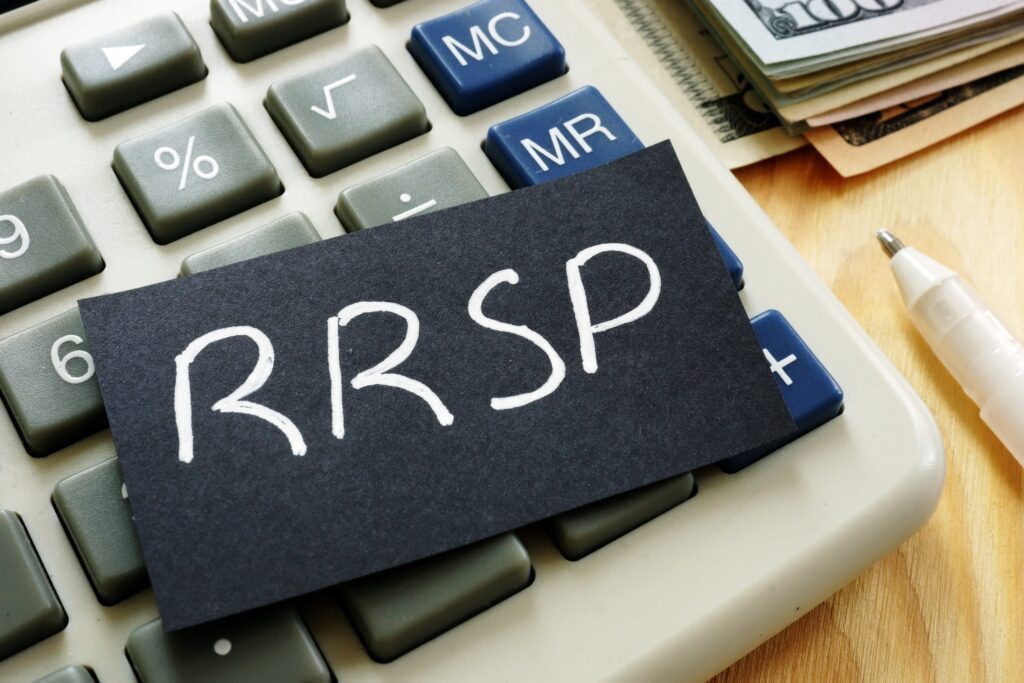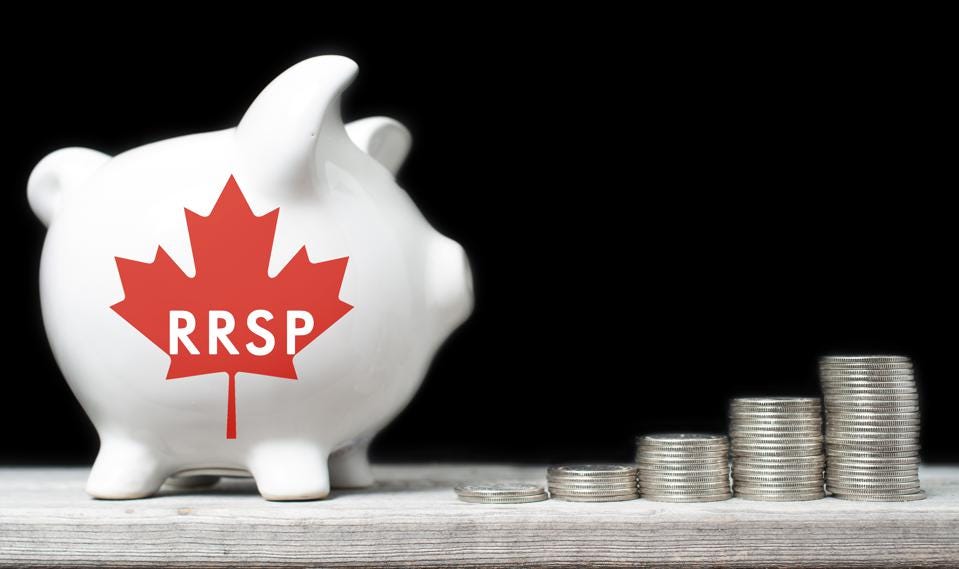
Are you looking for a smart investment that not only provides financial security now, but also presents an opportunity to increase your wealth in the future? Investing in real estate through your Registered Retirement Savings Plan (RRSP) can be a great way to create lasting financial stability. With RRSPs being one of the most popular types of tax-sheltered accounts among Canadian investors, it’s no surprise that many are considering using their funds as capital to purchase real estate. So if you’re interested in learning more about how this type of savings plan can help you make smart investments and grow your retirement portfolio, keep reading!
What is an RRSP is and how Does it work?
An RRSP stands for a Registered Retirement Savings Plan, and it is an account designed to help Canadian residents save money for retirement. It allows contributors to invest in myriad products and services such as stocks, bonds and mutual funds. Contributions made to a RRSP are tax deductible, reducing their taxable income in any given year and deferring the taxation of contributions until the time those funds are withdrawn from the plan. Additionally, all proceeds from investments within the plan grow tax-free until withdrawal. Withdrawals are treated as taxable income during the year they are taken out of the RRSP. Having knowledge about RRSPs can help Canadians save money for later life comfortably by taking advantage of lower tax rates than if they were to simply invest on their own without such type of plan.
How do You Use an RRSP to Invest in Real Estate?
An RRSP (Registered Retirement Savings Plan) is an investment vehicle that offers tax-saving benefits as well as a way to save for retirement. For savvy investors, RRSPs can also be used to invest in real estate, giving them a viable alternate to standard stock and bond investments. To use an RRSP to invest in real estate, individuals must first open a self-directed RRSP account which allows real estate investments among the permitted assets. Contributions should then be made to the account before researching and buying investment properties. However, caution should be exercised by investors, since some real estate assets are only eligible up to certain limits within an RRS plan. With careful attention and thoughtful planning, investing with an RRSP in this manner can be a sensible way for Canadians to realize their financial objectives of retirement security and building long-term wealth.
What are the benefits of RRSPs and how can they can help you invest in real estate?
Registered Retirement Savings Plans (RRSPs) provide flexible and effective investing tools to help Canadians increase medium- and long-term savings. One of the key benefits of RRSPs is that they offer a significant level of tax relief, as contributions are deducted from a person’s taxable income and some form of income deferral will also occur in most cases. This can result in a lower overall tax rate for those taking advantage of these investments. Additionally, an RRSP can be used as collateral to finance a down payment for real estate purchases – this type of leverage is often advantageous due to the opportunity it creates to diversify one’s investment portfolio quickly. When done correctly, RRSPs combined with real estate investments can contribute greatly to achieving financial security for retirement.
What types of real estate investments can be made with an RRSP
The Registered Retirement Savings Plan (RRSP) offers investors unique opportunities to use their savings to invest in real estate. Potential investments include residential properties such as single-family homes, townhomes, and condos; rental properties that generate income; vacation homes which can be used for pleasure or rented out; and development projects, such as a multi-family buildings purchased with other investors. With a RRSP, investors are able to leverage the power of tax-free savings while taking advantage of the equity increases often seen in real estate. Investors should thoroughly research any types of real estate investments they’re considering making before proceeding as market conditions can vary significantly by geographic area and type of property.
What are the pros and cons of borrowing money to invest in real estate with an RRSP
Investing in real estate through an RRSP can be a great way to diversify your portfolio and capitalize on tax savings, but it’s important to weigh the pros and cons before committing to such a large financial decision. On the plus side, you can use pre-tax income when buying real estate with an RRSP, access financing more easily as lenders may be willing to provide you with more favourable terms for retirement investments, and benefit from any appreciation of your asset value. But there are also risks associated with investing this way – funds borrowed from an RRSP must be paid back within a set period or you will face hefty penalties, tenants can create additional headaches and unexpected expenses if they fail to pay rent on time, and you could experience significant losses if the market declines. Ultimately, it’s best to discuss potential investments with a qualified financial advisor who can provide comprehensive advice tailored to your individual goals and needs.
What are the legal and tax implications of investing in real estate with an RRSP
Investing in real estate through an RRSP can offer a number of potential rewards; however, it is important to be aware of the legal and tax implications. Any rental income as a result of an RRSP-held property must be reported as income, and any payments to contractors used to service or improve the property may also be claimable. Depending on the type of asset management that takes place, having an RRSP could also have significant capital gains tax implications that need to be considered. Professional accountants or advisors should always be consulted before embarking upon this type of investment venture. With proper guidance and planning, investing in real estate with an RRSP can be extremely rewarding.
What are the best practices for using your RRSP to maximize returns on your real estate investments?
As a savvy investor, you should be aware of practices to maximize your Real Estate Investment Trust (REIT) returns using Registered Retirement Savings Plan (RRSP). When shopping for real estate investments with an RRSP, it is important to ensure the purchase matches the goals and risk tolerance based on the individual’s overall financial situation. Other best practices include keeping contributions within reasonable limits and diversifying investments among multiple REITs. In addition, it can be beneficial to monitor the market and rebalance holdings regularly. Lastly, in order to get the most out of an RRSP for real estate investing, investors should make sure to weigh any tax implications associated with their chosen investment strategy or with liquidating funds before making decisions. With careful consideration and analysis of potential risks and rewards along with timely timing of transactions, savvy investors can use RRSPs to yield maximum returns from their real estate investments. Check out our post about “6 reasons why you should use a local real estate agent in Mississauga” on our blog page now!
Conclusion – How to Use RRSP to Invest in Real Estate?
Investing in real estate through an RRSP can be a great way to diversify your retirement portfolio and generate long-term passive income. As with all financial strategies, it’s important to consider the risks as well as the rewards associated with investing in real estate with an RRSP. Taking the time to understand how RRSPs work and the advantages and disadvantages of each type of real estate investment will help you make the best decision for your financial future. You should also speak to a qualified financial professional or adviser if you have any questions or concerns about making real estate investments with your RRSP. With careful research and planning, you can make informed decisions that could yield higher returns in the years ahead.
With that said, if you are interested in working with top real estate agents in Mississauga, then Joe Battaglia is here to help! Contact us today for free home evaluations and let us help you with your real estate journey!
You can also check out our additional resources below for more info!
Additional Resources (Social Media):
| How to Invest in Real Estate During a Recession |
| What is Negative Leverage in Real Estate |
| What is Real Estate Arbitrage |

